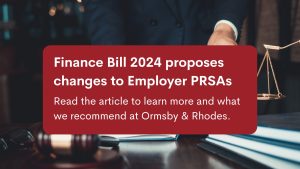According to the Irish Examiner, Battery Electric Vehicle (BEV) sales in Ireland hit a new record in January, bouncing back after a slow 2024 (23.6% decrease in sales v 2023 figures). Data from the Society of the Irish Motor Industry (SIMI) shows that 4,925 BEVs were sold last month, marking a 20% increase compared to January 2024. This surge highlights a marked uptick in EV confidence, as businesses and individuals look towards greener and more cost-effective transport options. Furthermore, it’s a topic we are regularly asked about here at Ormsby & Rhodes, an AAB Group Company, as companies consider their fleet options.
Calculating the BIK on EV Company Cars
As with all employer-provided vehicles, the taxable benefit (BIK) is calculated based on the ‘cash equivalent’. This is the amount added to the employee’s taxable income.
Key Factors in the BIK Calculation of EVs
- From 1 January 2023, a CO2 emissions-based BIK regime for company cars applies. The amount taxable as BIK is determined by the car’s OMV (Original Market Value), the annual business kilometres driven and the CO2 emissions bands.
- A €10,000 reduction in OMV applies to cars in Categories A, B, C, and D (not Category E). You can view the categories here.
- An additional €35,000 relief applies to electric vehicles.
- EVs must operate on battery only – the reliefs do not apply to hybrid cars.
Extension to Benefit for Workplace Charging and What’s New for 2025
If an employer provides an EV charging point at the workplace and makes it available to all employees, there’s no BIK tax to pay on it. This has been a useful incentive for businesses to support employees who drive EVs.
What’s new for 2025 is the introduction of a tax exemption on home charging facilities for employer-provided EVs. This means that if an employer pays for a charging unit to be installed at an employee’s or Director’s home, it will not be taxed as a benefit – as long as:
- The employee or Director has private use of a company-provided electric car.
- The employer owns the charging unit.
This change makes it more appealing for employees to drive EV company cars, without worrying about additional BIK costs on the charging unit.
Reimbursing Home Charging Costs
Another useful benefit is that employers can reimburse employees for the costs associated with home charging without it being taxed – under strict conditions:
- The reimbursement must only cover the cost of charging the employer’s company car.
- The employer must keep detailed records (such as electricity bills) to prove the amount being reimbursed is correct.
What Should Employers Do Now?
With these changes coming into effect from 2025, now is a good time for businesses to:
- Consider their overall fleet and whether it makes sense to invest in EVs.
- Review their company car processes and procedures to ensure all benefits and BIK nuances are being managed correctly.
- Consider the purchase of home charging units where new EVs are being added and ensure employees fully understand the process for reimbursements and can provide the necessary paperwork.
- Review Revenue guidance or reach out to our experts here at Ormsby & Rhodes, an AAB Group Company, for company vehicle tax advice tailored to your business.
Keen to discuss your options?
Reach out to our experts at Ormsby & Rhodes, an AAB Group Company, by emailing info@ormsby-rhodes.ie.






